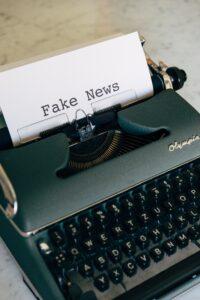Belgium: A state of pragmatism
As one of the original six founders of the European Union, Belgium has been a powerful driving force behind the continent's unification. However, after nearly 174 years of pragmatic nationhood, the marriage between its two main communities has become increasingly shaky.
The modern nation state often seems to be particularly contrived and Belgium counts among the more bizarre examples of this creature. It has no natural or linguistic boundaries to explain its separation from its neighbours – the houses gradually get smaller as you head into the Netherlands and the pastures get bigger as you head into France.
In addition, it has no common language, no national newspapers or broadcasters, and an increasingly powerless and dysfunctional federal government.
One country, three languages
Belgium is home to three languages communities – Dutch, French and German – and three geographical – Flanders, Brussels and Wallonia – regions. In such a multi-lingual setting, nothing quite matches the power of words. Language – an issue which gets passions rising across the country and is often used as a sounding board for wider political and economic grievances – was the midwife to Belgium's birth and threatens to split it apart today.
Although the country's short-lived union with the Netherlands was a match made at the bank and brought with it prosperity, Belgium emerged as an independent state on the back of an 1830 revolt that began at, of all places, the Brussels opera house. King William's authoritarian rule, Protestant faith and his decision to impose Dutch as the only official language caused a great deal of disgruntlement among his Belgian subjects, who were already reeling from a general economic downturn in Europe.
Following independence, French grew to become Belgium's lingua franca for education, government and all official purposes. Frustration began to mount among the country's Dutch-speaking population and – although some language reforms took place after World War I – these came to a head in the 1960s Flemish civil rights movement.
Continuing state of compromise
Although Belgium's famous ability to compromise has resulted in a bizarre political arrangement, the quiet revolution of the past few decades has prevented cultural grievances from exploding into a violent conflict as they have done in other parts of the world. Unlike most federal systems, the once central state apparatus is gradually being deconstructed. This time, the process did not begin at the opera but in the tiny village of Voeren/Fouron, where a linguistic dispute precipitated the collapse of the national government in 1987.
The subsequent devolution has resulted in a unique parallel system where power is divided geographically into regions and linguistically into communities to satisfy contrasting Walloon and Flemish ambitions for greater regional economic power and more cultural autonomy. Although the federal government still controls such critical areas as defence and healthcare, the most radical reform has been the gradual corrosion of the supremacy of national over regional authorities. This has led to the rather surreal situation of each region setting its own foreign policy and Flanders considering the prospect of bidding for the 2016 Olympics.
Judging from the amount of media coverage and the lack of knowledge they exhibit of their compatriots, it sometimes appears that Flanders and Wallonia might as well be in different countries. Nevertheless, calls continue – particularly among Flemings who regard the poorer Francophone region as an economic burden – for further devolution.
The Belgian paradox
It is difficult to miss the apparent paradox of Belgium being one of the key architects of an increasingly unified Europe and yet facing such obvious estrangement at home. But it is an allegory of the wider European scene: the burgeoning EU is united by political pragmatism and economic common sense, but divided by linguistic and cultural diversity. And, as the Union expands ever eastward, what constitutes a European identity is becoming even more difficult to pin down.
Strangely enough, the very fact that Belgium is at the heart of a larger evolving animal could be assisting its own demise. In the borderless EU, the concept of the ‘nation state' is slowly becoming more notional. If Flemish nationalists felt their demands for independence meant – rather than simple cultural autonomy – financial and political isolation, the movement would quickly lose steam.
Neither of Belgium's two regions is likely to be able to make it alone in a global village populated by titan multinationals. Since becoming part of the Netherlands and France is also not an option the vast majority of Belgians are willing to countenance, their best bet is to stick to their current union however imperfect it may seem.
For the country to be more than a patched-together marriage, it needs more to cement it together than a smudging of pragmatism. It needs to overcome the cultural estrangement and political distrust between its two main communities. This requires the nurturing of a national awareness and pride in the country's diversity. The media and bilingual schools could help to protect the linguistic heritage of both communities, while raising a new generation of Belgians who can bridge the gap between Flemings and Walloons.
________
This article appeared in the March 2004 issue of Newcomer magazine.


